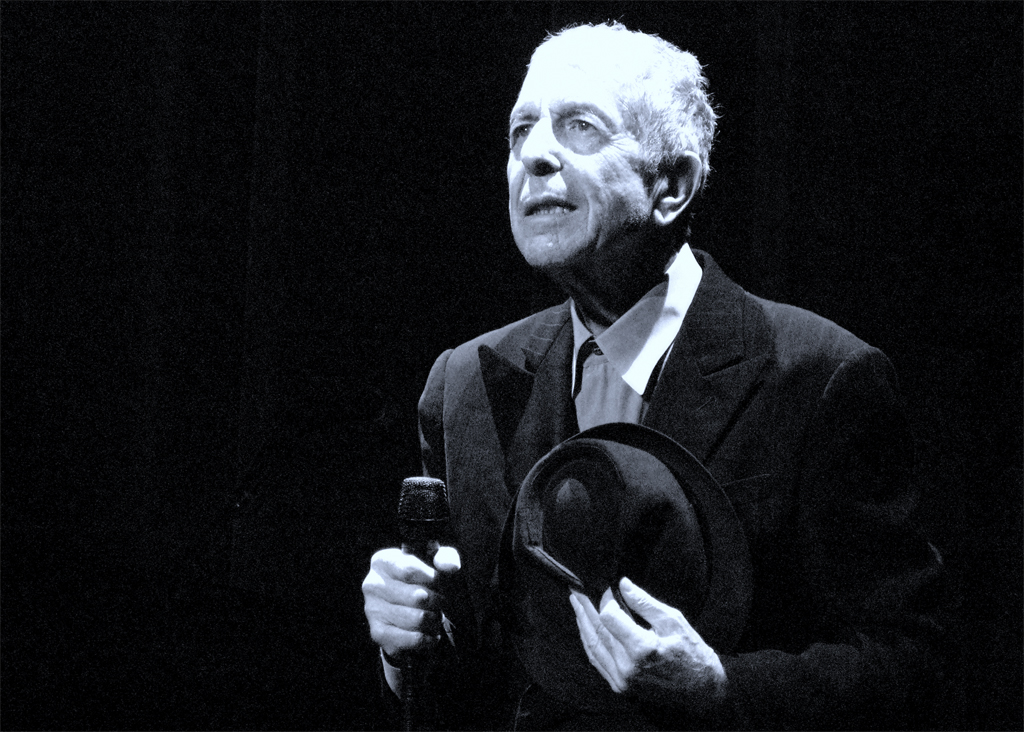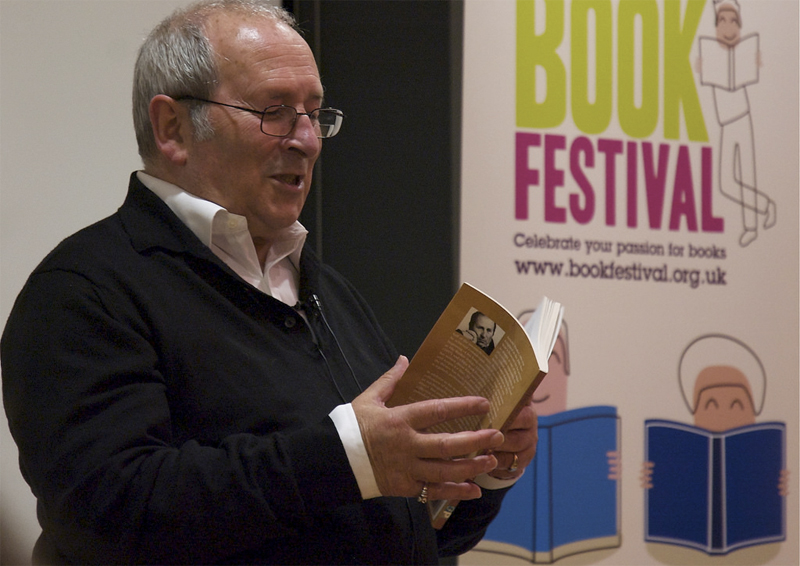The German-British Jewish painter has died at the age of 93. Art historian Monica Bohm-Duchen looks back at his life and vital contribution to European art…
Michael Graubart 1930-2024
Meir Shalev 1948-2023
Sir Antony Sher 1949-2021
Jackie Mason 1928-2021
Erica Gordon 1941-2020
Norman Bright 1936-2021
Dame Fanny Waterman 1920-2020
Canadian singer-songwriter Leonard Cohen has died, age 82
 On Monday 7 November, one of music’s most eloquent and able songwriters passed away. Leonard Cohen was 82 when he died peacefully at his home in southern California earlier this week. His son Adam said touchingly in an interview with Rolling Stone, “My father passed away peacefully at his home in Los Angeles with the knowledge that he had completed what he felt was one of his greatest records. He was writing up until his last moments with his unique brand of humour."
On Monday 7 November, one of music’s most eloquent and able songwriters passed away. Leonard Cohen was 82 when he died peacefully at his home in southern California earlier this week. His son Adam said touchingly in an interview with Rolling Stone, “My father passed away peacefully at his home in Los Angeles with the knowledge that he had completed what he felt was one of his greatest records. He was writing up until his last moments with his unique brand of humour."
The record Adam is speaking about is You Want it Darker, which was recently released (21 Oct) and effused the sincere, gravelly tones and orchestral movements he was so well known for.
Born in Westmount, Quebec on 21 September 1934, Cohen grew up in a middle-class Jewish family. Marsha Klonitsky, his mother, was the daughter of a rabbi, while his father, Nathan Cohen, had Polish heritage – his father Lyon Cohen having emigrated from Poland in 1871 and later founding the Canadian Jewish Congress.
While at high school Cohen picked up an appreciation of poetry and by age 20 had published his first poems in a magazine called CIV/n. It wasn’t until the 60s, however, that Cohen began life as a musician. In 1967 he moved to New York, befriended Andy Warhol and penned the song Suzanne, which was to be his first successful foray into the world of music.
Despite a prolific, 60-year career, Cohen never charted highly in the mainstream. His highest ranking song in Canada, Closing Time, reached Number Five, while in the UK it was only the reissue of Hallelujah that ever charted at position 36.
Originally released in 1984, Hallelujah has become the song Cohen is most renowned for. The singer never had much success with it himself, but it was remarkably covered over 300 times, most notably by the late US singer Jeff Buckley, who scored a Number One hit with it.
As well as music, Cohen was also known as an accomplished author. Over the years he published two novels – The Favourite Game (1963) and Beautiful Losers (1966) – and 13 anthologies of poetry.
Eleven albums down the line, in 2005, Cohen was in the public eye for something other than his art after his close friend and manager Kelly Lynch was exposed for misappropriating over $5m from Cohen’s accounts. This hefty loss formed a big part of Cohen’s reasons for writing new music and touring again.
Earlier this year Cohen’s former lover Marianne Ihlen died. She was the Marianne of the song So Long, Marianne, which Cohen wrote about her when the pair dated and lived in Hydra, Greece for much of the 60s. Shortly before Marianne passed Cohen penned her a heartfelt letter saying: “Marianne it’s come to this time when we are really so old and our bodies are falling apart and I think I will follow you very soon. Know that I am so close behind you that if you stretch out your hand, I think you can reach mine.”
The world has lost a truly talented spirit that will live on in Leonard Cohen’s songs, poetry and legacy.
By Danielle Goldstein
British playwright Sir Arnold Wesker died aged 83 on April 12th: JR's arts editor Judi Herman recalls the pleasure and privilege of sharing lunch and confidences with the great man
 Sir Arnold Wesker, who has died at the age of 83, first came to prominence in the late 1950s as one of the playwrights dubbed ‘Angry Young Men’, though he later rejected this label. I would say advisedly so, for his famous trilogy of plays drawing on his background in the Jewish East End and upbringing in a family with a strong Communist identity, introduced one of the most memorable positive heroines of post-war literature. Beatie Bryant, the Norfolk-born heroine of the middle play in the trilogy, Roots (the first being Chicken Soup with Barley, and the last is I’m Talking About Jerusalem).
Sir Arnold Wesker, who has died at the age of 83, first came to prominence in the late 1950s as one of the playwrights dubbed ‘Angry Young Men’, though he later rejected this label. I would say advisedly so, for his famous trilogy of plays drawing on his background in the Jewish East End and upbringing in a family with a strong Communist identity, introduced one of the most memorable positive heroines of post-war literature. Beatie Bryant, the Norfolk-born heroine of the middle play in the trilogy, Roots (the first being Chicken Soup with Barley, and the last is I’m Talking About Jerusalem).
I was lucky enough to meet Sir Arnold when Roots was wonderfully revived at the Donmar Warehouse in 2013 and I was invited to meet this great, delightful and erudite man at the Brighton home he shared with his beloved wife, the supremely resourceful and devoted Dusty, on whom the radiant Beatie was modelled. I say invited, because the hugely hospitable Dusty made what she called "a light lunch", to which my husband Steve was also invited and it was truly memorable – both for Dusty’s cooking and for the conversation over lunch. And that’s on top of what I was privileged to record for JR OutLoud with Arnold while lunch was cooking, when he spoke at length about the inspiration for Roots and much more about his life and work.
Arnold was still supremely articulate despite the Parkinson’s Disease that dogged his later years. I had also had the pleasure of speaking to him on the phone some years before about Shylock, his take on The Merchant of Venice, in which Shylock and the Merchant of Venice are close and supportive friends and the pound of flesh the result of a nonsensical bond, genuinely made as a gesture to the draconian Venetian authorities, that goes horribly wrong. But meeting him in person and being welcomed into their home by this wonderfully complementary pair will always be a very special memory for me. My heart goes out to Dusty and I am sure all readers will join with me in wishing her long life.
By Judi Herman
Listen to Sir Arnold Wesker discuss his life and works in 2013 on JR OutLoud.









